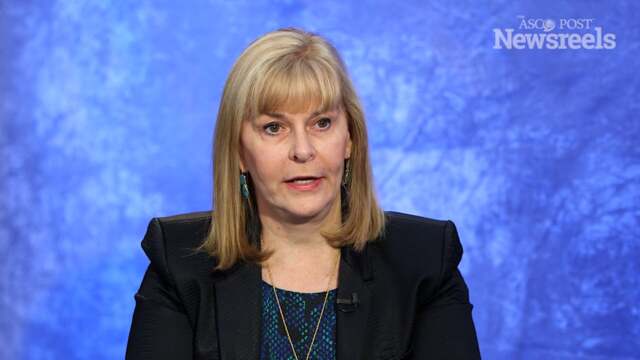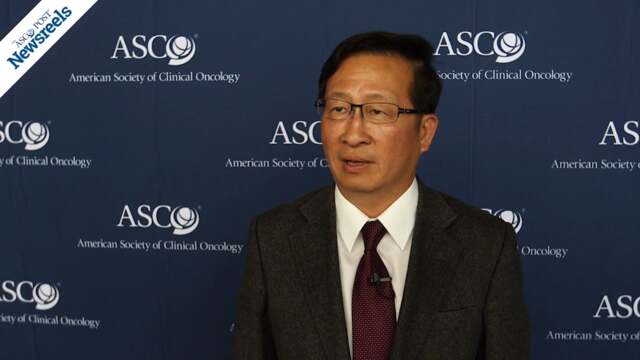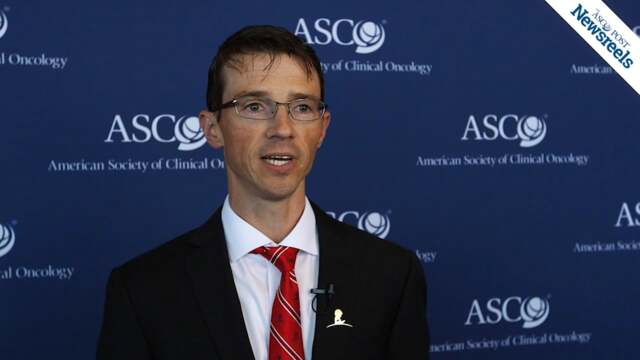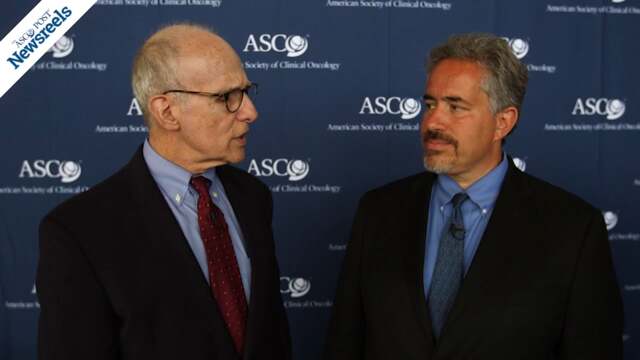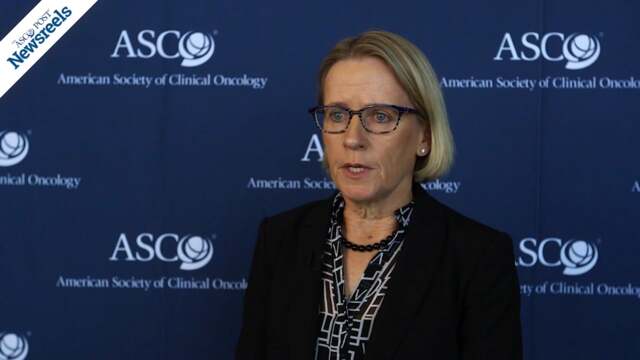Tanya B. Dorff, MD, and Sumanta K. Pal, MD, on Prostate Cancer: Expert Perspectives on STAMPEDE and a Phase IV Trial
2017 ASCO Annual Meeting
Tanya B. Dorff, MD, of the USC Norris Comprehensive Cancer Center, and Sumanta K. Pal, MD, of the City of Hope, discuss two key presentations on prostate cancer: findings on adding abiraterone for men with high-risk prostate cancer starting long-term androgen-deprivation therapy, and an after-market study on continuing enzalutamide post PSA progression in men with chemotherapy-naive metastatic castration-resistant prostate cancer. (Abstracts LBA5003, 5004)
Julie Vose, MD, MBA, of the University of Nebraska Medical Center, discusses two hematologic abstracts: results from the OPTIMAL>60 study on radiotherapy to bulky disease PET-negative after immunochemotherapy in elderly patients with diffuse large B-cell lymphoma; and an analysis of autologous vs matched sibling donor or matched unrelated donor allogeneic hematopoietic cell transplantation in follicular lymphoma patients with early chemoimmunotherapy failure. (Abstracts 7506, 7508)
Ann-Lii Cheng, MD, PhD, of the National Taiwan University Hospital, discusses phase III study findings on lenvatinib vs sorafenib in first-line treatment of patients with unresectable hepatocellular carcinoma. (Abstract 4001)
Todd M. Gibson, PhD, of St. Jude Children’s Research Hospital, discusses results from the Childhood Cancer Survivor Study, which showed a reduction in serious chronic morbidity measured across 3 decades. (LBA10500)
David H. Henry, MD, of Pennsylvania Oncology Hematology Associates, and Ruben A. Mesa, MD, of the Mayo Clinic Cancer Center, discuss phase III study findings on momelotinib vs ruxolitinib in JAK inhibitor–naive patients with myelofibrosis. (Abstract 7000)
Jane McNeil Beith, MD, PhD, of Chris O’Brien Lifehouse, discusses long-term study results on a psychological intervention, called “Conquer Fear,” designed to reduce clinical levels of fear of cancer recurrence in breast, colorectal, and melanoma cancer survivors. (Abstract LBA10000)
